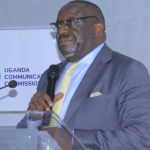Church of Uganda Launches Transformative Seed Capital Initiative to Combat GBV and Empower Women in Kumi Diocese

The Church of Uganda (COU) has introduced a Transformative Seed Capital Initiative worth shilling 42 million in Kumi Diocese to tackle gender-based violence (GBV) and promote women’s economic empowerment. The initiative grants funds to enhance socio-economic opportunities for women and girls, aiming to reduce their vulnerability to GBV.
In a bid to address gender-based violence (GVB) and promote women’s economic empowerment, the Church of Uganda (COU) has launched a Transformative Seed Capital Initiative worth shilling 42 million in Kumi diocese.
The seed capital initiative, which is a grant aims at enhancing socio-economic opportunities for women and girls to reduce their vulnerability to GBV.
Last year, the Church, through the Directorate of Household and Community Transformation under the interfaith action for gender justice and women’s economic empowerment projects, supported 12 Village savings and loans associations with shillings 12 million and each group getting sh1m in Kumi Diocese. The diocese is made up of the districts of Kumi, Bukedea and Ngora.
This year, the project is supporting 30 Village Savings and Loans Associations (VSLAs) with sh30m with each group getting shillings 1,000,000.
“The project is not limited to the women and men of Anglican faith but open to all religions because GVB cuts across religions,” COU communications officer of the province Sadiiki Adams said.
“The money is a grant, not a loan. We shall only be monitoring the groups from time to time to assess their progress and our prayer is that the money helps to transform the communities,” Adams explained during the launch event that took place on Monday at St Stephen’s Church, Kumi.
Kumi diocese, according to Sadiik, was picked following the 2016 World Bank report that put the eastern region in the spotlight for having many cases of GBV.
Persistent vice
Kumi Diocese Bishop Michael Okwi Esakhan, in a speech read on his behalf by diocesan secretary the Rev. Simon Peter Omoding, highlighted the persistent challenges faced by communities in Kumi and across Uganda.
“Kumi, like many other parts of Uganda, still experience a high prevalence of GBV manifested through physical, sexual, psychological and economic violations,” he stated.
COU director of household and community transformation the Rev. Andrew Agaba emphasized the barriers that women continue to face.
Key activities of the project include training and capacity building by offering programmes to enhance financial literacy and business development support for women and helping them start and manage income-generating activities.
Already some women’s groups have invested in sheep rearing and are happy with the church for empowering them.
“This project has greatly reduced our vulnerability to GBV, as financial independence allows us to make better decisions for ourselves and our families. Our group, along with many others, now has the means to sustain ourselves and contribute to the local economy,” observed Zaituna Amuge, the chairperson of Kachede Al-Haki Group in Bukedea.
The Rev. Odongo James of Mori Group said: “Our group received seed capital from the Church of Uganda and we invested in sheep farming because they are drought-resistant and can yield quick profits, as they can give birth twice a year and have a ready market.
This venture has not only provided us with a steady income but also strengthened our resilience against economic hardships”.
According to the programme officer for gender justice, Mr. Dennis Ogwang, the launch of this initiative marks a crucial step towards creating a more just and equitable society in Kumi Diocese and beyond.
“Women in Uganda continue to face barriers such as limited access to financial resources, educational disparities, discrimination in workplaces, and negative socio-cultural norms.”
He added: “These obstacles hinder their full participation in the development process and inhibit the realisation of their economic potential. Our goal is a violent-free world where inequality is no longer a barrier to anyone,” he said.







